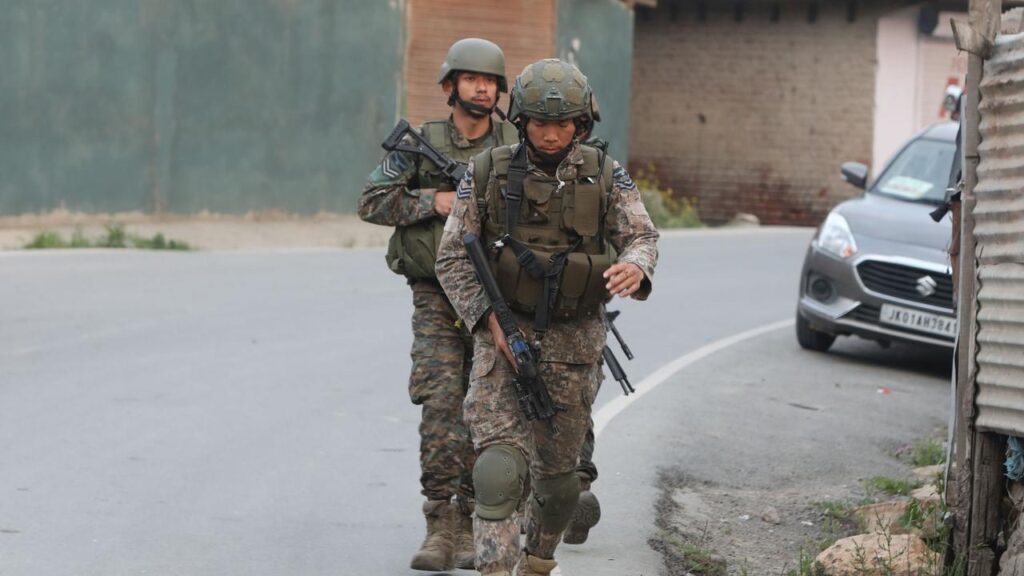‘Inferno’: Pakistan vows retaliation after India strike
|

India has hit Pakistan and Pakistani Kashmir with missiles and Pakistan has vowed to retaliate saying it shot down five Indian aircraft, in the worst clash in more than two decades between the nuclear-armed neighbours.
India on Wednesday told more than a dozen foreign envoys in New Delhi that “if Pakistan responds, India will respond,” fuelling fears of a larger military conflict in one of the world’s most dangerous – and most populated – nuclear flashpoint regions.
India said it struck nine “terrorist infrastructure” sites, some of them linked to an attack by Islamist militants that killed 25 Hindu tourists and one local in Indian Kashmir in April.
Pakistan said at least 31 of its civilians had been killed and 46 wounded, a military spokesperson said, and that India “had ignited an inferno in the region”. This included deaths from the strikes and border shelling.
Islamabad pledged to respond “at a time, place and manner of its choosing to avenge the loss of innocent Pakistani lives and blatant violation of its sovereignty”, emphatically rejecting Indian allegations it had terrorist camps on its territory.
Pakistan’s Defence Minister Khawaja Muhammad Asif told broadcaster Geo News that Islamabad would only strike Indian military targets and not civilians, in retaliation.
The Indian strikes included Punjab, Pakistan’s most populous province, for the first time since the last full-scale war between the old enemies more than half a century ago.
Islamabad said none of the six locations targeted in Pakistan were militant camps.

In Muzaffarabad, the capital of Pakistani Kashmir, the Indian strike had badly damaged a mosque-seminary in the heart of the city. Five missiles killed three people in the two storey structure, which also had residential quarters, locals said.
The Pakistan prime minister’s office said five Indian fighter jets and drones had been shot down, although this was not confirmed by India. The Indian embassy in Beijing called reports of fighter jets downed by Pakistan “disinformation”.
Images circulating on local media showed a large, damaged cylindrical chunk of silver-coloured metal lying in a field at one of the crash sites. Reuters could not immediately verify the authenticity of the image.
Indian forces attacked facilities linked to Islamist militant groups Jaish-e-Mohammed and Lashkar-e-Taiba, two Indian military spokespeople told a briefing in New Delhi, in what New Delhi called “Operation Sindoor”.
Wednesday’s strikes used precision weapons to target “terrorist camps” that served as recruitment centres, launchpads and indoctrination centres and housed weapons and training facilities, Indian military spokespeople said.
Indian Foreign Secretary Vikram Misri, the top official in its external affairs ministry, said the strikes were to pre-empt further attacks on India.
Misri briefed 13 foreign envoys in New Delhi on the strikes, an Indian source familiar with the developments said.
“India made it clear that if Pakistan responds, India will respond,” the source said.

The neighbours also exchanged intense shelling and heavy gunfire across their de facto border in Kashmir, with 13 civilians killed and 43 wounded on the Indian side and at least six killed on the Pakistani side, officials there said.
The scale of the strikes went far beyond New Delhi’s response to previous attacks in Kashmir, it has blamed on Pakistan.
US President Donald Trump said he wants to see India and Pakistan “work it out. I want to see them stop, and hopefully they can stop now. And if I can do anything to help, I will be there”.
There were calls for restraint from United Nations Secretary-General Antonio Guterres, China, which neighbours both India and Pakistan, and Russia as well as Britain.
Reuters